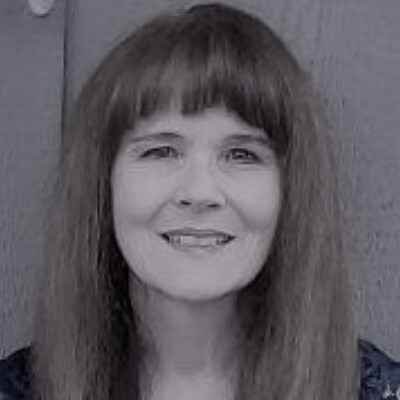
Teri
Kennedy,
PhD, MSW, ACSW, FGSA, FNAP
Ida Johnson Feaster Professor of IPE; Project Director/PI, Kansas 4M Geriatrics Workforce Educ Prog
University of Kansas Medical Center
Teri Kennedy is Ida Johnson Feaster Professor of Interprofessional Practice and Education, University of Kansas School of Nursing and Strategic Consultant, AHEC/Continuing Education. She has 17 years’ experience serving older adults across the care continuum. She is Fellow, National Academies of Practice (NAP)/Social Work Academy; Fellow, Gerontological Society of America; co-convener, AIHC Mentoring Collaborative; and Vice President, NAP Public Policy. Her scholarship includes sustainability, interprofessional leadership, team science, and health and aging policy. She developed the Kennedy Model of Sustainability, Strengths-Based Interprofessional Practice and Education, and M3 model of interprofessional academic-community partnerships. Teri is an indie singer-songwriter, writer, and podcaster.
Presenting at the Nexus Summit:
Background: Like most states, Kansas has struggled to have enough well-trained nurses and nurse aides to staff our long-term care communities and due to a shortage of nursing faculty, Kansas lacks the capacity to educate enough new nurses to meet the demand for care. While we have effective, evidence-based geriatric models of care, we have a know-do gap in which less than 10 percent of older adults are reached who benefit from these models. A new statewide practice-education partnership between long-term care professionals and nurse educators seeks to advance 4Ms care, bridge the know-do gap…
This lightning talk will explain the evidence-based Age-Friendly Health Systems (4Ms) framework (what matters, medication, mentation, and mobility), describe the Kansas 4M Geriatrics Workforce Education Program, and discuss the development of statewide reciprocal practice-education partnership to advance and sustain evidence-based care for older adults and their care partners and educate the current and future health, social, and direct care workforce to provide age-friendly and dementia-friendly care.
As healthcare systems continue to evolve, the need for sustainable leadership in interprofessional practice and education (IPE) has never been more urgent. High turnover, burnout, and an aging workforce threaten the continuity of interprofessional initiatives that are essential to improving health outcomes, especially in underserved and rural communities. This workshop offers a practical, inclusive, and outcomes-driven approach to succession planning as a strategic tool for sustaining interprofessional leadership.Participants will be introduced to strategies for succession planning that…
